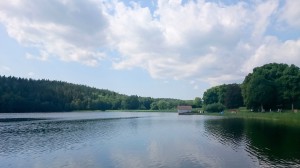Horizon 2020 och Storbritanniens EU votering
Av Ingemar Pongratz
En månad har nu passerat och Storbritanniens EU omröstning har verkloige skapat en hel del tumult. Effekterna av Brexit som resultat kallas verkar kunna bli rätt stora och omfattande och ingen vet riktigt vad som kommer att hända. Men det är helt klart att mycket kommer att förändras.
UK har inte formellt ansökt om utträde ifrån EU vilket kanske inte är så märkligt. Konstigt nog verkar myndigheterna i Storbritannien helt oförberedda på valresultatet. Kanske inte så konstigt med tanke på att det finns en ny regering som skall samla resterna. Vidare har Skottland hotat med att lämna Storbritannien vilket skapar ännu mer förvirring. Enligt de senaste nyheter vill Storbritannien’s regering försäkra sig om tillgång till EU inre marknad innan den formella ansökan om utträde lämnas in vilket verkar helt verklighetsfrämmande.
Tillgång till EU inre marknad innebär också att andra länder kommer att erbjudas tillgång till Storbritannien’s marknad vilket var en stor del av motståndet mot EU i Storbritannien. Så risken är att det kommer att ta lång till innan förhandlingarna överhuvudtaget kommer igång.
Detta är förstås olyckligt, eftersom det skapar osäkerhet. Storbritannien’s ekonomi har redan tagit stryk och finansmarknaden är orolig. Det brittiska pundet har tappat betydligt i värde gentemot andra valutor vilket naturligtvis påverkar den inhemska köpkraften negativt.
För Horizon 2020 betyder denna osäkerhet att brittiska partners möts med skepsis. Ingen vet vad resultatet av förhandlingarna mellan EU och Storbritannien kommer att gå och vilket status brittiska universitet kommer att få. Kommer de att ses som tredje part eller som associerade partners. Ingen vet hur det kommer att sluta. Positivt förstås är att Storbritannien regering har uttryckt att deltagandet i Horizon 2020 kommer att prioriteras vilket är bra för både EU och Storbritannien.
Så mycket lite substans och mycket osäkerhet. Hoppas läget klarnar snart.
Ingemar Pongratz är forskare och entreprenör. Ingemar Pongratz etablerade Fenix Scientific AB och Pongratz Consulting AB. Vi hjälper företag och universitet att söka Horizon 2020 finansiering. För att komma i kontakt med använd gärna vår online kontaktformulär eller skicka en epost till


